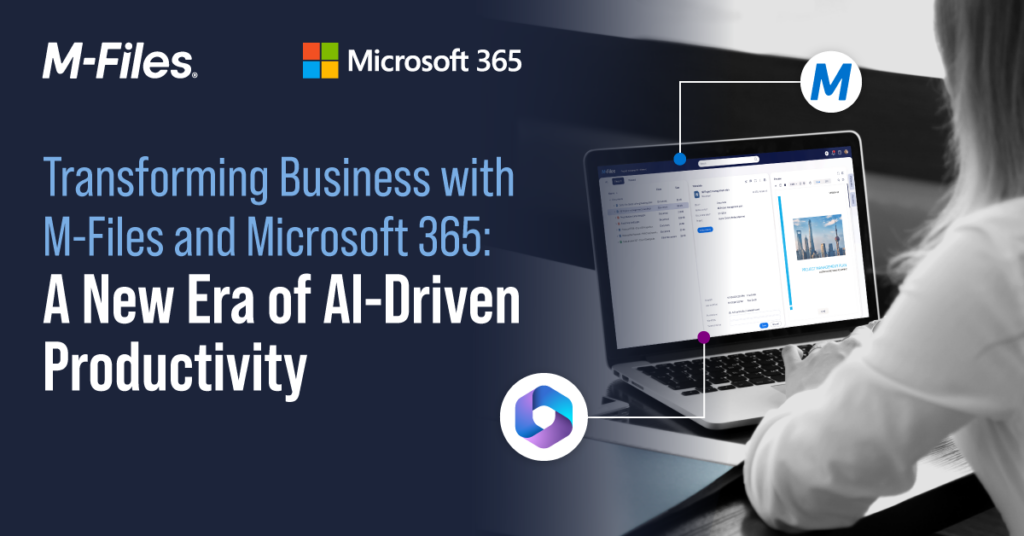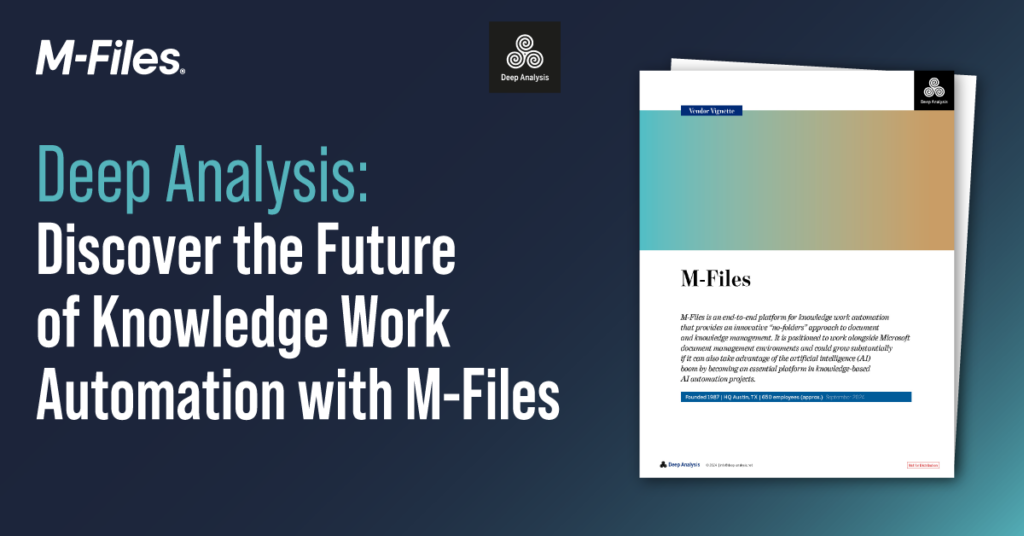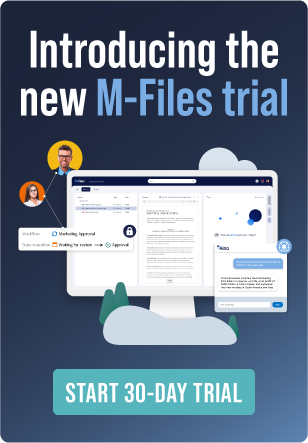Knowledge Work Automation Will Change Compliance

All companies rely on effective compliance to protect data and streamline business operations. The advantages of automating knowledge work are infinite. Companies can implement a comprehensive database to store institutional knowledge. This approach helps organizations minimize the risk of cyberattacks, avoid document mismanagement, and enhance workflows in every department. Organizations can then focus on superior customer service.
By uniting every aspects of compliance together, this approach reduces fragmentation that leads to procedural and regulatory issues.
So how does knowledge work automation help companies with compliance? Should companies shift to information management systems to retain and develop institutional knowledge? The benefits of knowledge work automation are endless. Knowledge work automation is a next-level, long-term approach for document risk management.
How does knowledge work automation help with compliance?
Living in the digital disruption era is a good thing. Updating knowledge organization is long overdue. Organizations, including small firms, recognize that compliance measures are essential in a digital world where digital transformation optimizes workflow structure.
A shift to knowledge work automation help companies focus on securing institutional knowledge. Security of sensitive data requires ease of use and visibility. Companies need a clear roadmap to locate documents. Document management storage systems achieve this goal. Knowledge sharing should be a straightforward process and assist in increased productivity.
Intuitive software that manages and controls how employees interact with documents should mitigate security risks. Compliance is easier when risk management solutions create automatic audit trails. Knowledge work automation gives a 360-degree view of all data, including archived documents for ongoing projects or future reference checks. Tracking the movement of information with content management tools enables employees to locate information with ease. A knowledge work category is automatically created for each document in the repository.
Mergers and acquisitions introduce another set of security and compliance issues. Knowledge management automation processes are an essential component during this transition. Central data storage systems need to effortlessly merge all files so knowledge workers can access and integrate them into existing workflows.
The biggest concern during this transition is compliance. Another concern is retaining sensitive company information from the merging firm. Retaining all documentation is useful when a company merges and creates new procedures to manage this transition. Processing automated files that list products and services that support new business goals will continually improve day-to-day workflows.
What is compliance automation?
Compliance automation is powered by AI-enabled technology that instantly analyzes documents while checking for compliance. Duplicate files or discrepancies are unearthed. Government regulations require firms to continuously change protocols to ensure company compliance measures meet industry standards. Automated compliance solutions helps eliminate manual processes and generates centralized tracking of all knowledge-based compliance procedures.
An effective automation compliance system keeps track of documents by categorizing them with metadata describing every process. It's a tool that maintains regulatory compliance during data categorization. Knowledge workers are safeguarded from compliance missteps that could lead to a procedural breach.
Employees receive a notification when compliance issues arise. Compliance automation is a systematic approach of gathering, regulating, and scrutinizing data throughout its lifecycle, to detect potential non-compliance issues. Organizations minimize risks of non-compliance and avoid the associated penalties and legal liabilities.
Managing Knowledge Work Compliance
Compliance work automation minimizes a wide range of risks. With traditional manual work, human error is inevitable. AI automation software provides compliance control. Sensitive institutional knowledge is securely stored. Employees can retrieve files without interrupting workflows. All team members can view documents, saving time for complex problem-solving. The quest to increase speed and decrease delays require the automation of business processes.
Collaborating with digital content communication is the future of work. Multiple people working on the same project avoid content chaos with knowledge work automation. Tracking team edits and keeping a log of changes allow knowledge workers to backtrack to the original document. Knowledge maintenance systems centralize documents into a user-friendly dashboard. Compliance automation is easy to assess when data is visible.
Safeguarding Documents
Hybrid and remote work increase the likelihood of exposure to cyber risk. Compliance automation software encrypts documents throughout the sharing and storing process. Metadata-driven permissions safeguard knowledge content. Authorized employees can edit, change, read, or delete information. Identifying malware with AI enterprise-grade systems ensures compliance remains intact during organizational changes and mergers.
Companies trust knowledge work automation software to support high-level decision making where security and compliance checks occur continuously. In fact, it's easy to find an example of a knowledge worker relying on information automation software to meet regulatory requirements.
FAQ
How does AI automation technology improve compliance?
By leveraging informational technology that minimizes risks and safeguards institutional knowledge. Metadata encryption securely stores and audits documents to reduce human error and enhance compliance.
What do knowledge workers stand to gain from knowledge work automation?
Knowledge workers can share, edit, and manage documents without breaching company protocols and procedures. Knowledge automation stores documents in a central database in real time while retaining an original copy of each document.




